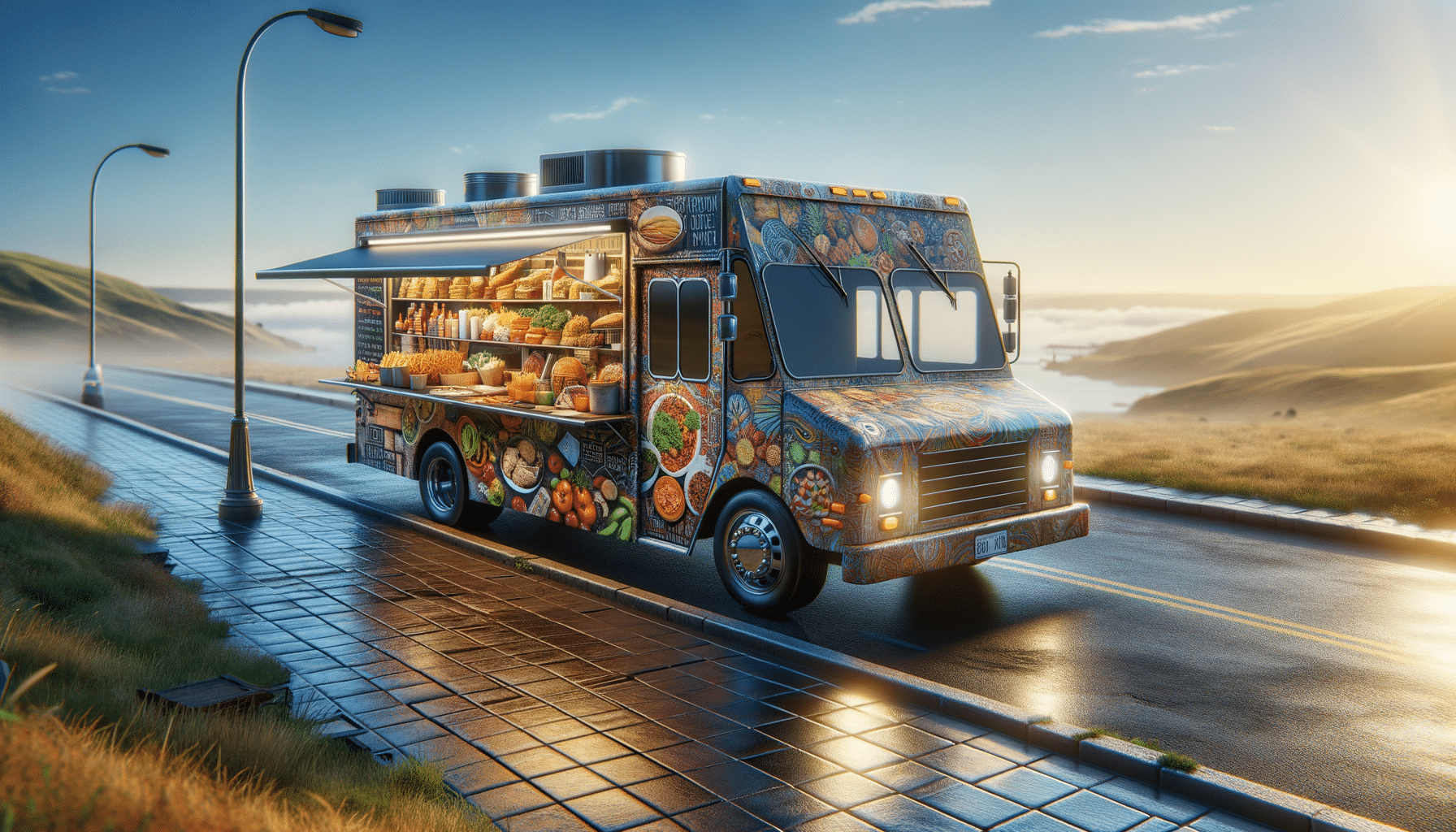
Start Your Culinary Journey with a Custom Food Truck
The Rise of Food Trucks: A Culinary Revolution
Food trucks have become a vibrant part of the culinary scene, transforming how we experience food. These mobile kitchens have evolved from simple street vendors to sophisticated culinary operations, offering gourmet meals at affordable prices. The growth of food trucks is not just a trend but a reflection of changing consumer preferences towards convenience, variety, and unique dining experiences.
Historically, food trucks were associated with quick, cheap eats, often catering to workers in industrial areas. However, the modern food truck movement began in the late 2000s, driven by economic downturns that made traditional restaurant ventures risky. Aspiring chefs and entrepreneurs saw food trucks as a lower-cost entry into the food industry, allowing them to showcase their culinary skills without the overhead of a brick-and-mortar establishment.
Today, food trucks are celebrated for their creativity and innovation. They provide a platform for culinary experimentation, offering dishes that might not fit into a traditional restaurant menu. This flexibility allows food truck operators to adapt quickly to food trends and customer demands, keeping their offerings fresh and exciting. Cities across the globe now host food truck festivals, where enthusiasts can sample a wide array of cuisines, from fusion tacos to artisanal ice creams.
Economic Impact and Opportunities
The economic impact of food trucks is significant, contributing to local economies by creating jobs and supporting other businesses. According to industry reports, the food truck industry generates billions in revenue annually, with a steady growth trajectory. This growth is fueled by the increasing consumer demand for convenient, high-quality food options and the relatively low startup costs compared to traditional restaurants.
Food trucks also provide opportunities for small business owners and entrepreneurs who may not have the resources to open a full-scale restaurant. The mobility of food trucks allows them to reach a broader customer base, from urban centers to suburban neighborhoods, festivals, and special events. This flexibility is a key advantage, enabling operators to test new markets and adjust their business strategies quickly.
Moreover, food trucks often source ingredients from local suppliers, supporting regional agriculture and contributing to the local economy. This focus on local sourcing aligns with the growing consumer preference for sustainable and ethically produced food, enhancing the appeal of food trucks to environmentally conscious diners.
Cultural Diversity on Wheels
Food trucks are a celebration of cultural diversity, bringing global flavors to local streets. They offer a unique opportunity for culinary exploration, allowing people to experience dishes from different cultures without leaving their city. This accessibility to diverse cuisines has broadened the culinary horizons of many, fostering a deeper appreciation for global culinary traditions.
Many food trucks are operated by immigrants or chefs with diverse cultural backgrounds, who infuse their menus with traditional recipes and flavors. This authenticity is a significant draw for customers seeking genuine culinary experiences. The ability of food trucks to offer authentic dishes from around the world contributes to their popularity and success.
Furthermore, food trucks often serve as a platform for cultural exchange, where chefs share their heritage through food. This exchange enriches the culinary landscape, promoting understanding and appreciation of different cultures. Food truck festivals and gatherings become cultural events, where people from various backgrounds come together to celebrate food and community.
Challenges and Considerations
While food trucks offer numerous benefits, they also face challenges that operators must navigate. One of the primary challenges is the regulatory environment, which can vary significantly from one location to another. Food truck operators must comply with health and safety regulations, obtain permits, and adhere to zoning laws, which can be complex and time-consuming.
Weather conditions also pose a challenge for food trucks, as they rely heavily on outdoor operations. Inclement weather can impact sales and customer turnout, requiring operators to have contingency plans in place. Additionally, competition in the food truck industry is fierce, with many operators vying for prime locations and customer attention.
Despite these challenges, many food truck operators find success by focusing on quality, innovation, and customer service. Building a loyal customer base through social media and community engagement can help food trucks thrive in a competitive market. Operators who adapt to changing trends and customer preferences are more likely to succeed in the dynamic food truck industry.
The Future of Food Trucks
The future of food trucks looks promising, with continued growth and innovation on the horizon. As consumer preferences evolve, food trucks are likely to expand their offerings to include more health-conscious and sustainable options. The integration of technology, such as mobile ordering and payment systems, will further enhance the convenience and efficiency of food truck operations.
Collaboration between food trucks and local businesses, such as breweries and event venues, will create new opportunities for growth and exposure. These partnerships can lead to mutually beneficial arrangements, where food trucks provide unique dining options for patrons while gaining access to established customer bases.
In conclusion, food trucks have become an integral part of the culinary landscape, offering diverse and delicious options on the go. Their ability to adapt to changing consumer preferences, coupled with their cultural diversity and economic impact, ensures that food trucks will continue to thrive and innovate in the years to come.

